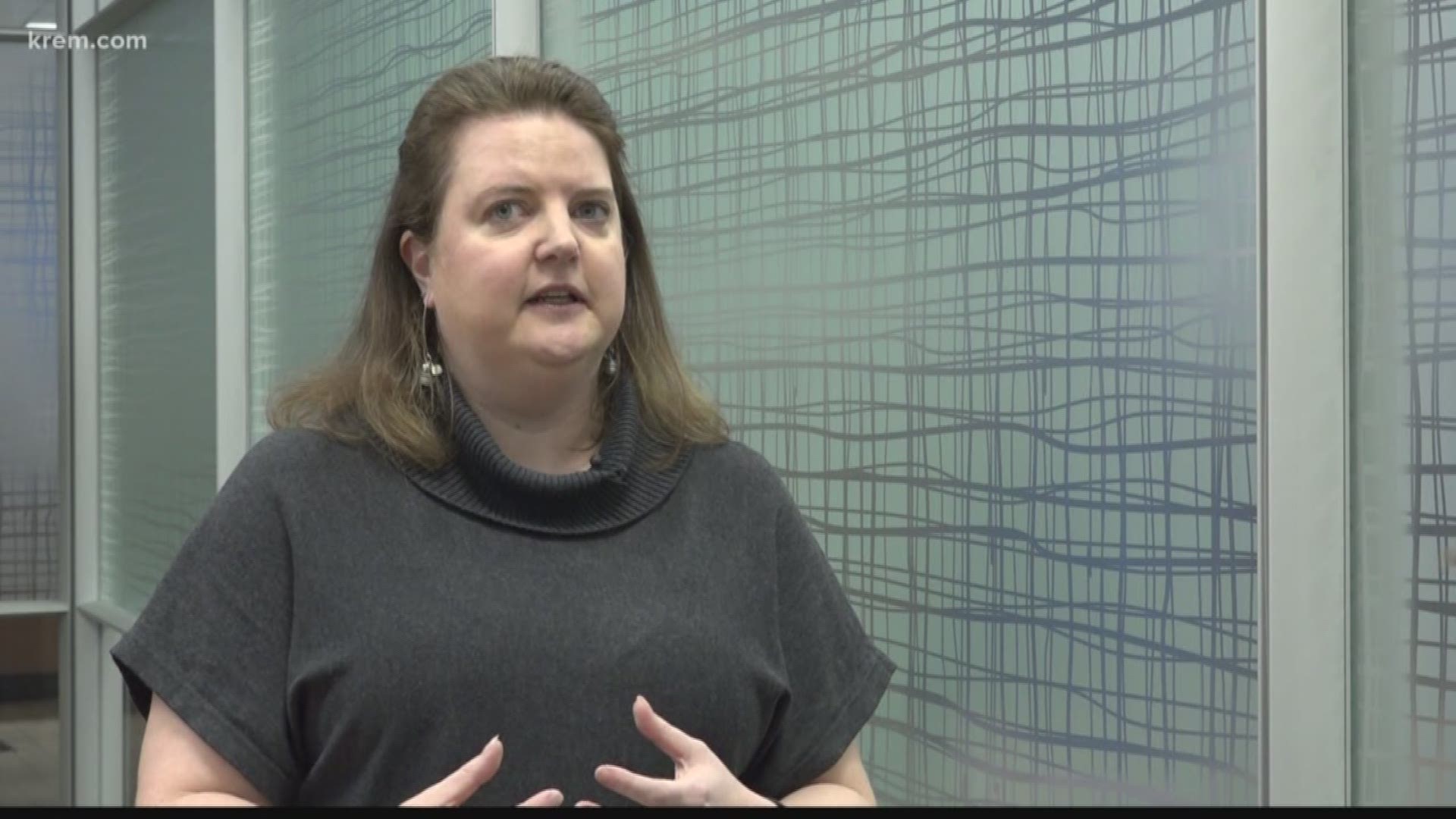SPOKANE, Wash. — The city of Spokane admits its current efforts to clean up homeless camps is uncoordinated.
Staff are now launching a new project to fix that. In 2018, the city of Spokane received about 500 reports of homeless camps on public property.
Carly Cortright, director of the City of Spokane's encampment migration project, said it cost about $100,000 in resources to clean them up. She said one of the reasons for being uncoordinated with clean-ups is how these camps are reported.
"A lot of times, people might call crime check directly to report an encampment along the river bank," Cortright said. "We've had some even come in through the health district. And there are people who will call the parks department directly because it's under hill park, for example."
The challenge with this, she said, is these different departments may not be able clean them up right away, and when they do, the outreach department may be unaware of the case.
"Our ultimate goal with encampments is to connect those campers with services," Cortright said. "So that's another facet of this. And so there's got to be a better way for us to connect campers with resources and do the clean up."
To find a solution, the city is launching an "encampment mitigation project." Cortright is the project manager.
The goal of this project is to get all departments involved on the same page and working together in a more streamlined process.
That starts by improving the reporting process. Cortright said all and any camps should be reported to 311.
"The ultimate goal has always been--report to 311," Cortright said. "Then, we can at least better manage a case that was created and we can follow that. Our response is still disjointed. And so part of this process is to find a way to work together across the different department."
Cortright said they want to have a plan in place for the project by no later than April. That's because most warming centers close in March. Then, they plan to do a full roll out of the encampment mitigation project in June.
"I think the other expectation is that we're going to come up with some better service guidelines of when can we expect these to be cleaned up," Cortright. "So I think citizens who currently are reporting encampments will see that they are going to get cleaned up in a much quicker manner than they have been in the past."

